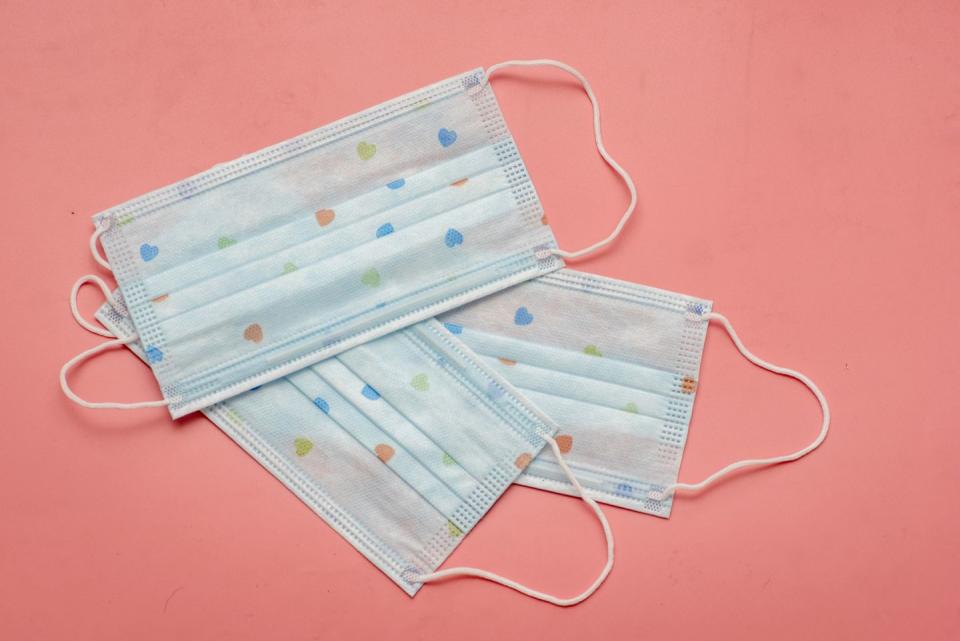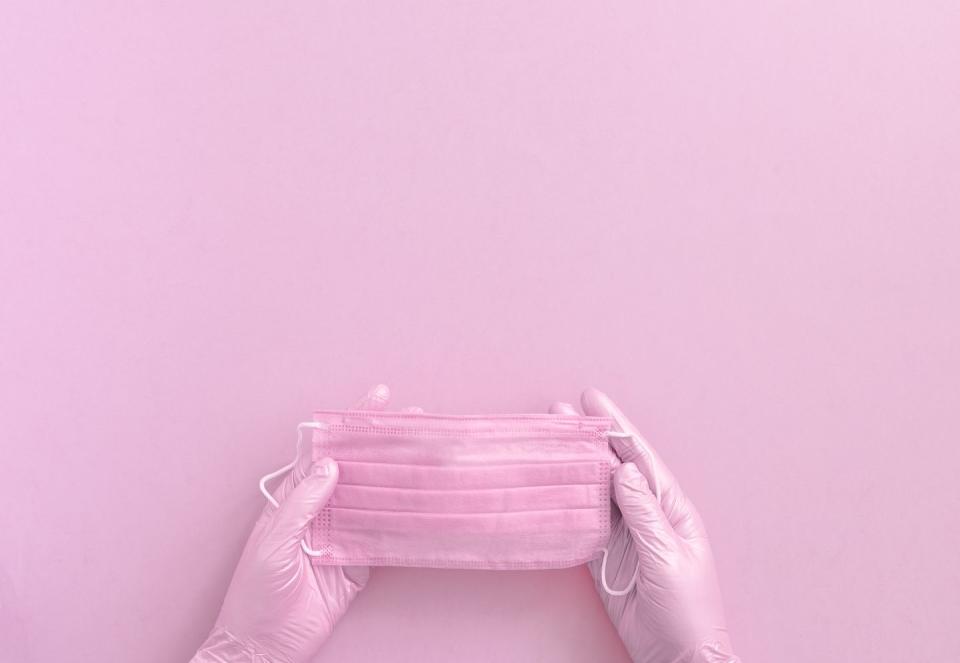People should start wearing face masks to protect against COVID-19, doctors say
Coronavirus - the deadly disease that has spread globally since it was first reported in the Chinese province of Wuhan in January - is still affecting people across the country. At the time of writing, there have been more than 380,000 deaths worldwide due to the virus, with over 39,000 in the UK.
Seeing people wearing face masks on public transport, the supermarket and in busy areas, in a bid to prevent themselves from falling ill has now become commonplace. But with the new government lockdown guidelines having been marginally eased, is it time to start scrambling online (if you haven't already), to get yourself a face cover-up too?
The answer, it seems, is yes. Today, the government announced that wearing face coverings when travelling on public transport will become mandatory from 15th June. Public transport includes buses, trams, trains, coaches, aircraft and ferries.
The new measures are a precaution against the further spread of coronavirus as lockdown rules begin to lift. But certain travellers, including very young children, plus disabled people and those with breathing difficulties, will be exempt.
But the British Medical Association (BMA) also said that the new rules don't go far enough, and that we should all be wearing face coverings in places where social distancing isn't possible. London Mayor Sadiq Khan welcomed the new rules on public transport, but also said they should be extended to shops, too.
Should you be wearing a mask to prevent coronavirus spreading?
Dr Jake Dunning, Head of Emerging Infections and Zoonoses, Public Health England, told Cosmopolitan UK back in March that while face masks play an important role in clinical settings, such as hospitals, there was little evidence of widespread benefit from their use beyond this.
"Face masks must be worn correctly, changed frequently, removed properly, disposed of safely and used in combination with good universal hygiene behaviours in order for them to be effective," Dr Dunning advised. "People concerned about the transmission of infectious diseases would do better to prioritise good personal, respiratory and hand hygiene.”

However, government guidelines [as of 11 May] began to encourage covering your face in some settings. Back then, they said: "Face coverings are not compulsory. However, if you can, people are advised to wear face coverings in enclosed public spaces where social distancing is not possible or where you are more likely to come into contact with people you do not normally meet.
"For example, on public transport or in some shops. Face coverings can help us protect each other and reduce the spread of the disease if you are suffering from coronavirus, but not showing symptoms."
Of course, the new rules mean that this guidance has changed, and that face coverings will be mandatory on public transport from 15th June.
The information continues on to say, "A face covering is not the same as the surgical masks or respirators used as part of personal protective equipment by healthcare and other workers; these should continue to be reserved for those who need them to protect against risks in their workplace such as health and care workers and those in industrial settings like those exposed to dust hazards."
How effective really are face masks for preventing the spread of coronavirus?
Considering the government is now encouraging face coverings in public and making the wearing of them compulsory for people travelling via public transport from 15th June, you can assume they're pretty effective. But a new study carried out by the University of Edinburgh has found that wearing a mask can reduce the spread of coronavirus by up to 90%.
Researchers found that face masks are most effective for preventing the forward spread of an exhaled breath - and that doesn't just apply medical-grade masks.
"It was reassuring to see the handmade mask worked just as well as the surgical mask to stop the wearer's breath flowing directly forwards," said Dr Felicity Mehendale, a surgeon at the Centre for Global Health at the University of Edinburgh's Usher Institute. "This suggests that some handmade masks can help to prevent the wearer from infecting the public."
However, the findings weren't quite so reassuring when it comes to preventing the spread of virus from air escaping from the back and sides of the mask. Breath was found to be more readily able to evade the face mask barrier when emerging from the top, bottom, back and sides, as opposed to the front.

In practical terms, it means if you're walking behind a face mask wearer who coughs, sneezes or breathes heavily, you may still be exposed to small droplets of water from their exhaled air - some of which may contain traces of the virus. If you're face-to-face with a mask-wearer, you're far less likely to have any virus transmitted in this way.
"The strong backward jets mean you need to think twice before turning your head if you cough while wearing a mask and be careful if you stand behind or beside someone wearing a mask," said Dr Mehendale.
If you want to prevent any 'backwards draft' emerging, you'll need a mask with a tight seal at all edges.
What are the symptoms of coronavirus?
Typical indicators of coronavirus include flu-like symptoms including a fever and a cough. These symptoms may progress to shortness of breath and severe pneumonia. The NHS and the government now advise that you should self-isolate for 14 days if you – or somebody you live with – have a new, persistent cough or a fever. Some people are also voluntarily choosing to socially distance themselves, which is being encouraged by the government, who have urged people to avoid pubs, clubs, restaurants and theatres.
Generally, coronavirus has a worse impact on older people and those with weakened immune systems, perhaps because they suffer from other conditions like diabetes, cancer and chronic lung disease.
The NHS advice for self-quarantine is as follows:
Do:
Don't:
Invite visitors to your home or allow visitors to enter
Go to work, school or public areas
Use public transport like buses, trains, tubes or taxis
Share dishes, drinking glasses, cups, eating utensils, towels, bedding or other items with other people in your home
The information in this story is accurate as of the publication date. While we are attempting to keep our content as up-to-date as possible, the situation surrounding the coronavirus pandemic continues to develop rapidly, so it's possible that some information and recommendations may have changed since publishing. For any concerns and latest advice, visit the World Health Organisation. If you're in the UK, the National Health Service can also provide useful information and support, while US users can contact the Center for Disease Control and Prevention.
Like this article? Sign up to our newsletter to get more articles like this delivered straight to your inbox.
You Might Also Like

